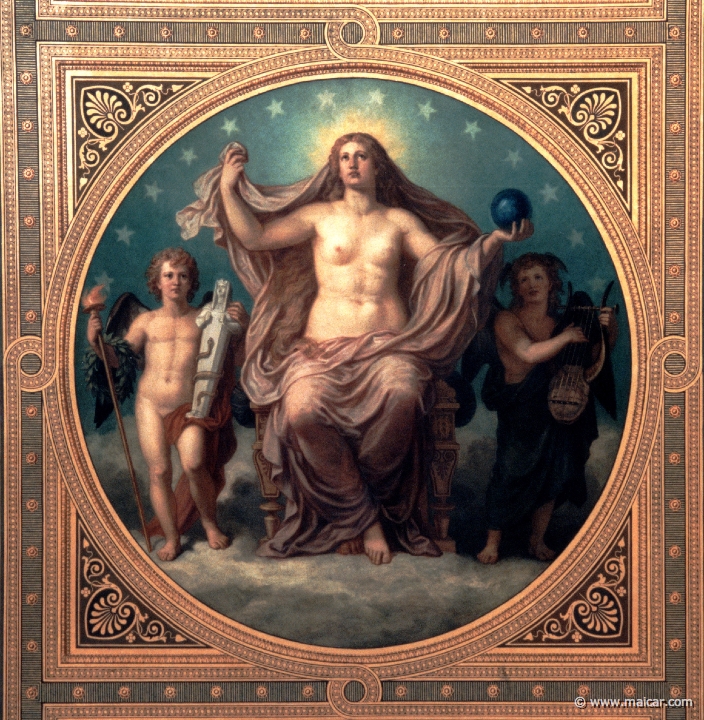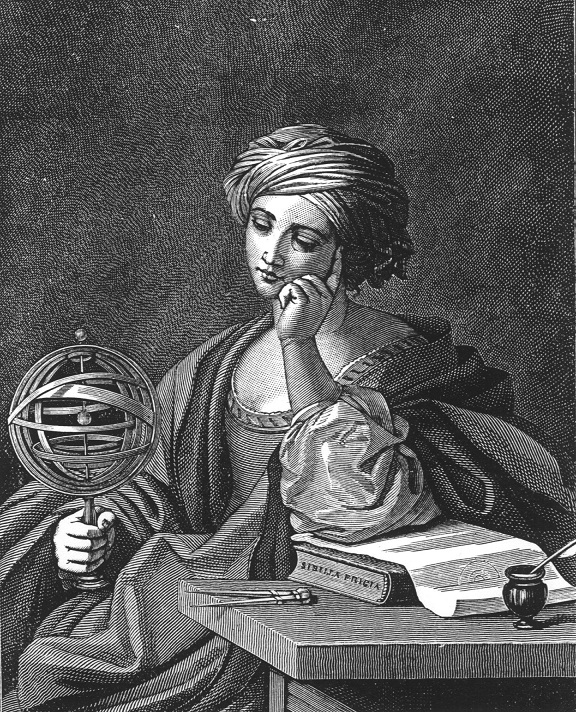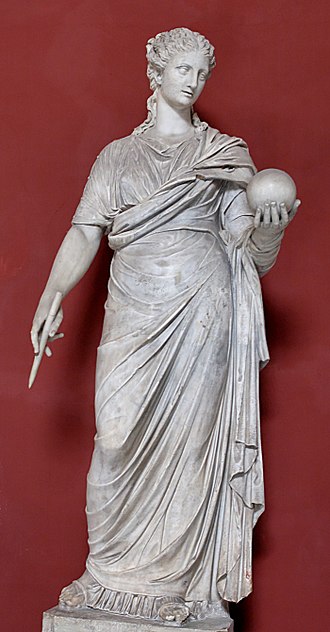Urania
Urania (Uranya as a variant form or Ourania) (Ancient Greek: Οὐρανία), meaning "heavenly" or "of heaven"; was in Greek mythology the muse of astronomy.
Urania was the daughter of Zeus by Mnemosyne and also a great granddaughter of Uranus. Some accounts list her as the mother of the musician Linus by Apollo or Amphimarus, son of Poseidon, and Hymenaeus also is said to have been a son of Urania.
Urania was obsessed with the sky and the study of the stars. In fact, her namesake was Uranus, the primordial Titan who embodied the sky, and her grandfather. This was a very powerful concept in Greek mythology, as the sky was a place of divine power.
Zeus, for example, was also a being associated with the sky. As the granddaughter of Uranus and daughter of Zeus, Urania's role as the Muse of astronomy is not inconsequential. She contained some of the power and authority of her forebearers.
Like the other Muses, Urania is depicted as a beautiful woman and generally draped in a flowing cloak. The globe and the compass are used to identify her in ancient art she often gestures towards them with a short staff.

This likely reflects the connection between astronomy and navigation in the ancient world. As goddess of astronomy, she could read the stars better than anyone else and watched the movements of various celestial bodies in order to predict the future.
Additionally though, Urania and the other Younger Muses would entertain other gods, to sing, dance and retell stories, especially about the greatness of Zeus.
Thus, whilst Urania was said to reside with the other Muses upon Mount Helicon, much of the time of the goddess and her sisters was spent upon Mount Olympus, where they were commonly found in the company of Apollo and Dionysus.
Urania was also occasionally conflated with the planet Venus, a celestial body itself, and therefore with the goddess Aphrodite. Both were beautiful and inspirational, and Aphrodite was also said to be a descendant of Uranus.

Sources
GREEK
Hesiod, Theogony - Greek Epic C8th - 7th B.C.
Homerica, Fragments of Unknown Position - Greek Epic B.C.
Pindar, Fragments - Greek Lyric C5th B.C.
Greek Lyric IV Bacchylides, Fragments - Greek Lyric C5th B.C.
Greek Lyric V Folk Songs, Fragments - Greek Lyric B.C.
Plato, Phaedrus - Greek Philosophy C4th B.C.
Apollodorus, The Library - Greek Mythography C2nd A.D.
Diodorus Siculus, The Library of History - Greek History C1st B.C.
Pausanias, Description of Greece - Greek Travelogue C2nd A.D.
The Orphic Hymns - Greek Hymns C3rd B.C. - C2nd A.D.
Nonnus, Dionysiaca - Greek Epic C5th A.D.
ROMAN
Hyginus, Fabulae - Latin Mythography C2nd A.D.
Statius, Thebaid - Latin Epic C1st A.D.
BYZANTINE
Suidas, The Suda - Byzantine Greek Lexicon C10th A.D.













